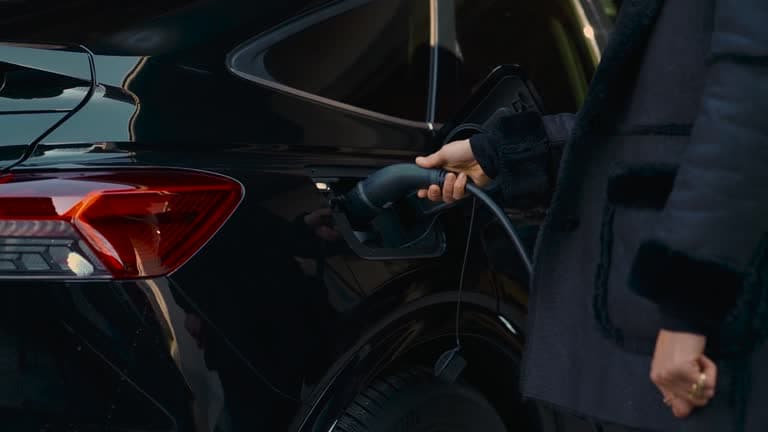The automobile industry is undergoing a massive transformation. What started as mechanical innovation has evolved into a blend of artificial intelligence, automation, and sustainability. From electric vehicles to smart cars that can think and respond, the future of automobiles promises to redefine how we live, drive, and connect.
1. The Rise of Electric Vehicles (EVs)
Electric vehicles have become the centerpiece of innovation in the automotive world. With companies like Tesla, BMW, and Toyota leading the movement, EVs are no longer a futuristic dream — they are today’s reality.
- EV sales are projected to reach 40% of total global car sales by 2025.
- Governments are offering incentives and expanding EV charging networks.
- EVs significantly reduce carbon emissions and dependency on fossil fuels.
As battery technology improves, charging times are getting shorter, and driving ranges are increasing, making electric vehicles more practical for everyday users.
2. Autonomous Driving: The Road to Self-Driving Cars
The journey toward fully autonomous cars is one of the most exciting developments in the automotive industry. Companies such as Waymo, Tesla, and Mercedes-Benz are developing Advanced Driver-Assistance Systems (ADAS) that use:
- Cameras and sensors
- Artificial intelligence (AI)
- Real-time data processing
While completely autonomous cars are still being tested, semi-autonomous systems already assist with lane changes, braking, and parking — improving safety and reducing human error.
Key Benefit: Autonomous technology could reduce road accidents by up to 90%, according to industry experts.
3. Artificial Intelligence and Connectivity
Modern vehicles are smarter than ever. Artificial intelligence (AI) has become the backbone of today’s car systems, enhancing both performance and convenience.
Smart Features Powered by AI:
- Predictive maintenance: Detects problems before they occur.
- Voice-activated assistants: Control navigation, music, and climate with simple commands.
- Driver behavior analysis: Improves safety through real-time insights.
With the expansion of 5G networks, connected cars can communicate with each other and with smart city infrastructure. Imagine your car interacting with traffic signals, detecting road conditions, and finding parking spots automatically — that’s the future we’re heading toward.
4. Sustainable Materials and Green Manufacturing
Sustainability is no longer optional — it’s essential. Beyond electric engines, automakers are embracing eco-friendly materials and green manufacturing.
Trends in Green Automobile Production:
- Use of recycled plastics, organic fabrics, and plant-based composites.
- Factories powered by renewable energy sources.
- Lightweight vehicle designs that improve fuel efficiency.
By focusing on environmentally friendly production, manufacturers are reducing their carbon footprint and creating vehicles that are as clean to make as they are to drive.
5. The Future of Car Ownership
The concept of owning a car is evolving. Instead of traditional ownership, people are opting for mobility solutions that prioritize flexibility.
New Ownership Models:
- Car subscription services: Pay monthly for access to different vehicles.
- Car-sharing apps: Rent vehicles on demand.
- Ride-hailing platforms: Replace ownership with convenience.
These trends are redefining transportation, especially in urban areas where people value convenience, sustainability, and cost savings over long-term ownership.
Conclusion
The future of the automobile industry is about more than just transportation — it’s about innovation, connectivity, and sustainability. As electric, autonomous, and smart technologies continue to evolve, our cars will become more efficient, intelligent, and environmentally friendly.
The next generation of vehicles won’t just take us places — they’ll transform the journey itself.


